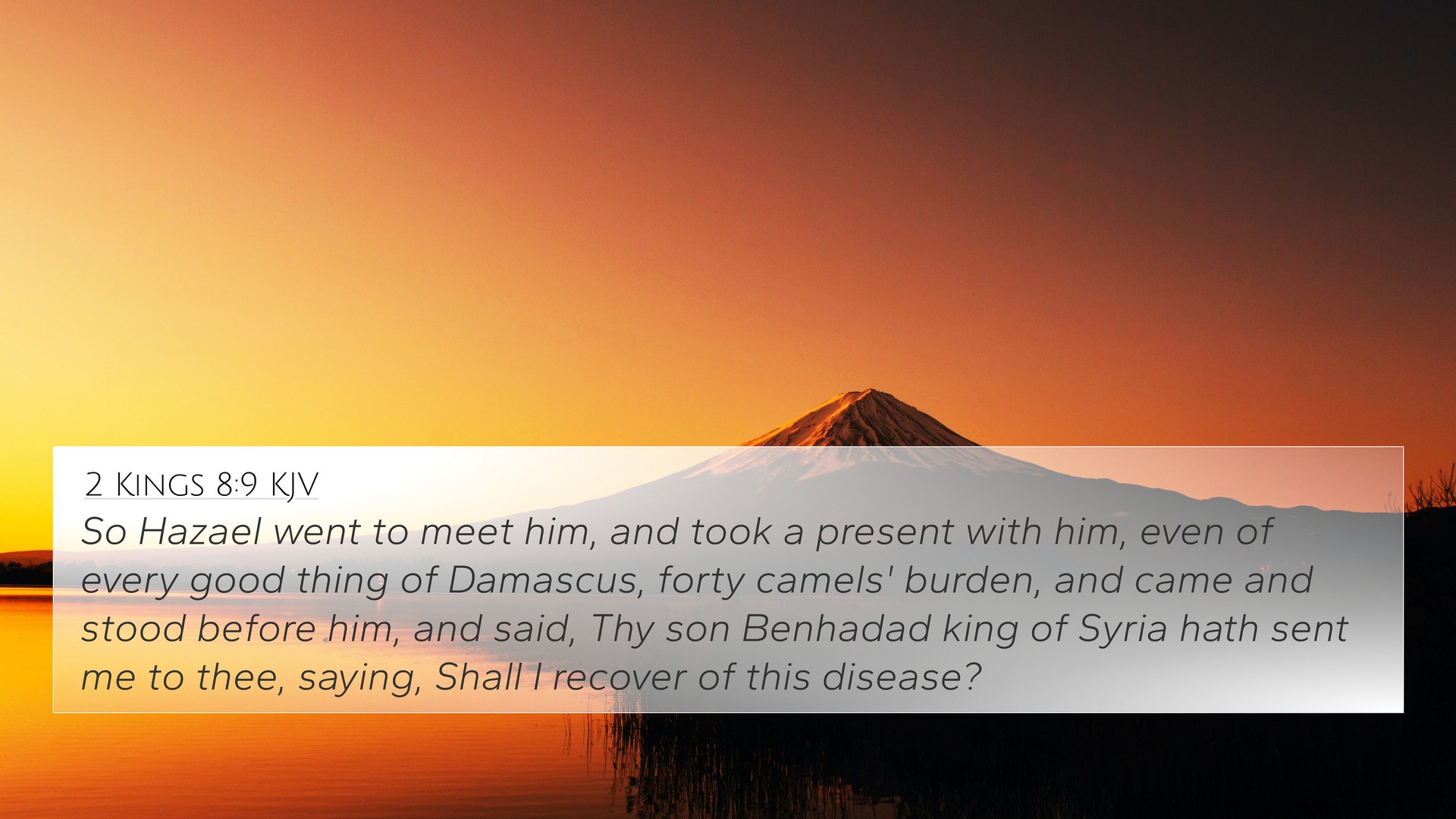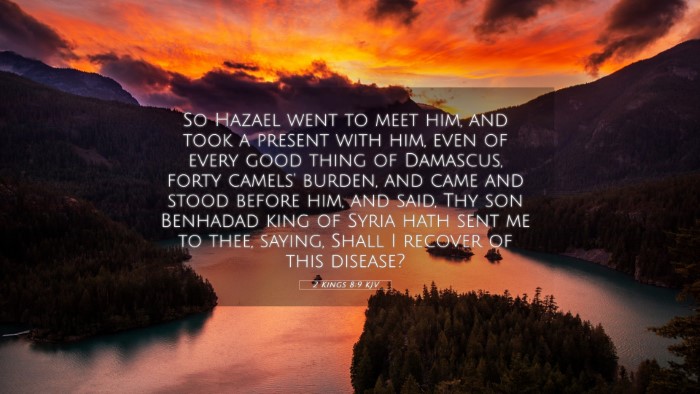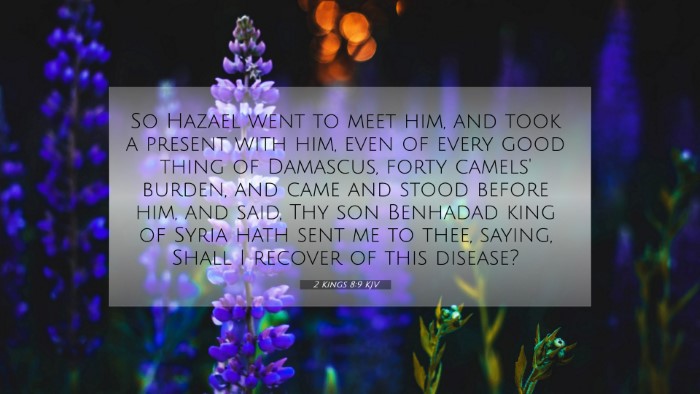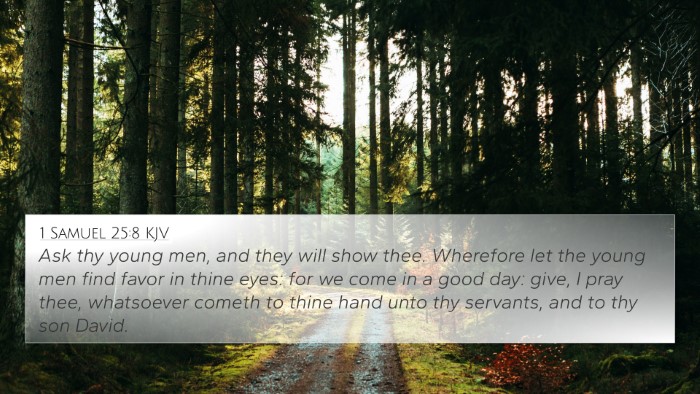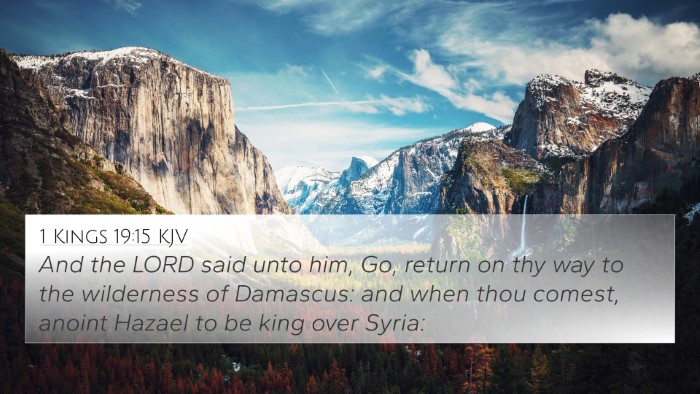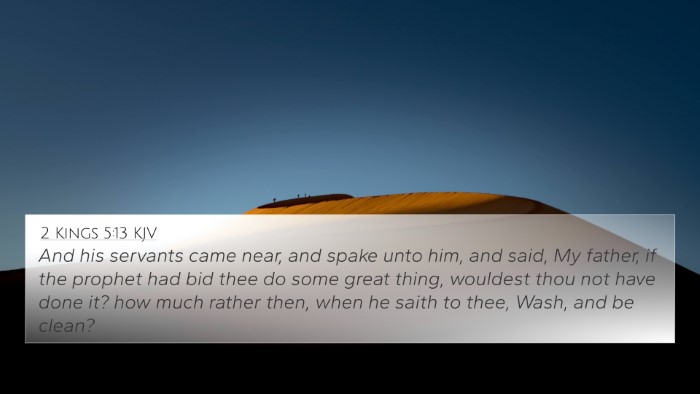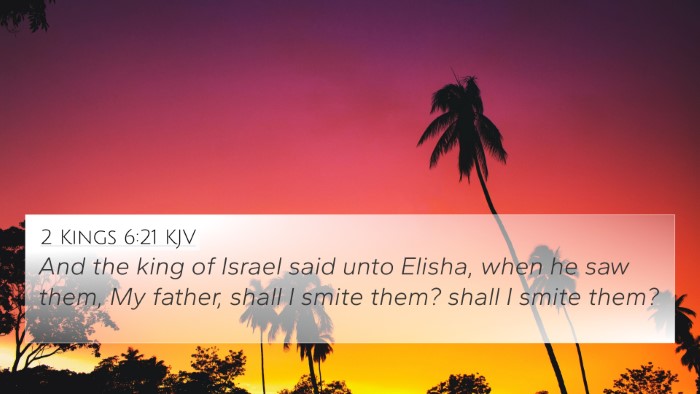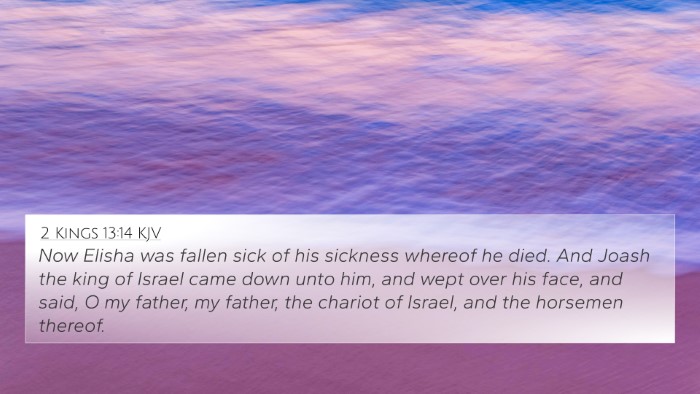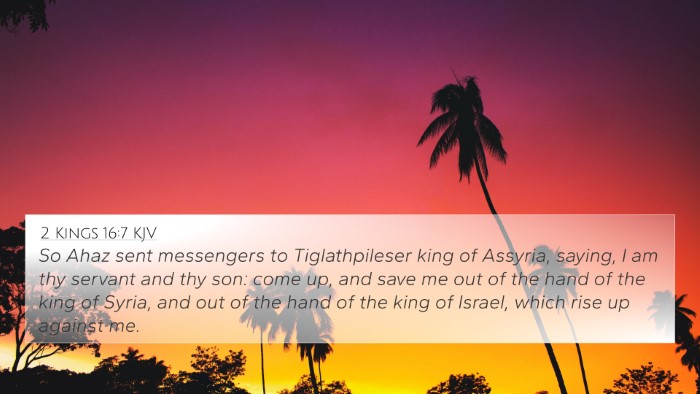Understanding 2 Kings 8:9
The verse 2 Kings 8:9 states: "So Hazael went to meet him, and took a present with him, even of every good thing of Damascus, forty camels' burden, and came and stood before him, and said, Thy son Benhadad king of Syria hath sent me to thee, saying, Shall I recover of this disease?" This verse encapsulates a critical moment in the narrative of the kings of Israel and Syria, demonstrating themes of political intrigue, the seeking of information regarding health, and the significance of gifts in Ancient Near Eastern culture.
Commentary Insights
Matthew Henry's Commentary: Henry highlights Hazael's approach to the prophet Elisha, emphasizing the mixture of politeness and cunning in political maneuvering. He notes that this was a time of desperation for Benhadad, showcasing the king's reliance on others, even as he sought insight into his fate through the prophet Elisha.
Albert Barnes' Notes: Barnes describes the context of Hazael's visit as a calculated risk. He points out that the "present" Hazael carried symbolizes not just material wealth, but an attempt to curry favor with Elisha for personal and national interest. The forty camels loaded with gifts underline the wealth of Damascus and how such offerings were a customary practice to secure prophetic favor.
Adam Clarke’s Commentary: Clarke offers an exploration of Hazael’s character. He suggests that while Hazael is engaging in subterfuge, there is a deeper narrative unfolding about the sovereignty of God over the affairs of nations. Clarke also connects this action to the overall decline of Israel, emphasizing that often, divine prophecy concerning Israel’s decline came through foreign leaders like Hazael.
Thematic Connections and Bible Verse Cross-References
Exploring cross-references helps illuminate the broader narrative surrounding 2 Kings 8:9. Here are several relevant connections that provide deeper insights:
- 1 Kings 19:15-17 - God instructs Elijah to anoint Hazael, indicating his future significance in the annals of Israel's history.
- 2 Kings 5:1 - The story of Naaman introduces us to the importance of Aram (Syria) and its leaders’ interaction with Israel.
- 2 Kings 6:8-23 - The ongoing conflict between Syria and Israel underscores the backdrop of Hazael’s actions and motives.
- Amos 1:3 - A prophecy against Damascus illustrates God’s judgment against Syria, linking the moral and spiritual contexts of these events.
- Luke 4:27 - Jesus refers to Naaman, creating a New Testament parallel to the issues of faith and the messenger from God’s prophets.
- 2 Kings 8:7-8 - Directly precedes our verse, where Elisha's interaction with Benhadad sets the stage for Hazael's cunning visit.
- Isaiah 7:1 - Highlights the geopolitical tensions of the era, framing the historical events surrounding 2 Kings in a larger context of Israel's struggles.
- Micah 5:6 - A prophetic reference to the impending downfall of the Assyrians and their relationship with Israel and its neighboring nations.
- Ezekiel 27:16 - Further details on the economic and political landscapes of the surrounding nations, showing the intricate relationships and dependencies.
- Matthew 2:6 - Echoes Old Testament prophecies and their fulfillment, bringing a New Covenant perspective to the significance of such Old Testament events.
Conclusion
In summary, 2 Kings 8:9 not only highlights a pivotal moment in the narrative of the Israelite kings but also unveils a broader tapestry of God’s providential hand in history through the lives of even the most unlikely characters. The study of this verse invites further exploration into the interconnectedness of scripture, where the themes of divine sovereignty, political dynamics, and prophetic fulfillment converge.
For scholars and laypersons alike, employing tools for cross-referencing such as a Bible concordance or a comprehensive Bible cross-reference guide can enhance one’s understanding of how various scriptures relate to each other, forming a cohesive understanding of biblical principles and narratives.
